80% of women by 50 years of age will have experienced fibroids.
Each of us may know at least one family member or friend struggling with uterine fibroids. When I heard this statistic, I instantly recollected memories of my friends suffering pain and discomfort with every menstrual cycle.
I was eager to talk to Chloe A. Mondesir, who successfully creates and sustains progress for diverse populations, (race/health) equitable missions, and systemic advancement. Chloe, a Spelman College, B.A., and Mercer University, M.S. recipient works across philanthropic spaces through non-profits and entrepreneurship with Make It Mondesir, LLC.
Chloe was diagnosed with fibroids at 25 and has been actively driving efforts to increase information and research on fibroids in Black women. Here is our conversation on fibroids, treatment options, and her role as a change agent for all women’s health.
What are your earliest memories of your mother’s struggle with fibroids?
Around 5th grade, I went through this phase where I wanted siblings. I remember talking to my mom about it. She told me how challenging it was for her to have me. That is my earliest memory. I did not understand then how fibroids challenged her reproductive health. I learned more about my mother’s story as an adult, after my diagnosis.
Having seen your mother go through all that she did, how did you feel when you were diagnosed with fibroids?
I was relieved. I never thought that being diagnosed with fibroids would mean not having kids, knowing what I did from my mother and the fact that I am here. So, it was reassuring on that level. It was also a bit scary, as I did not know what it would mean for me. I was 25, single, and not thinking about kids when I was diagnosed. I am in a different place in my life than when my mother was diagnosed, as a married woman. I started the initial fibroids conversation with my OB/GYN about why I was so debilitated, which led to my diagnosis.
What medical options were presented to you when you were diagnosed with fibroids by your doctor?
There were no options other than birth control presented to me. Birth control helps with the heavy, debilitating pain and menstrual flow. I always had extended, heavy menstruation, severe cramping, and constant fatigue. My cousin encouraged me to have a conversation with my OB/GYN, and to check if birth control could help with some of the symptoms like bloating, flow, and pain.
How has your doctor helped you in your struggle with fibroids? Tell us about the support system you have in place.
I would not attribute any of my support to my primary OB/GYN. I have been navigating by myself the past three years, exploring my options, experimenting with my diet, and researching. I happen to be working in women’s health policy now, so I understand legislative impact. It has been healing working with women in the reproductive health and justice space, especially around fibroids awareness and advocacy. I have found information through several fibroid research groups I participated in. My experience is not uncommon, particularly among Black women, feeling dismissed and unheard by their doctors. They are often left to self-management of fibroids.
What are your recommendations or wisdom for a woman diagnosed with fibroids?
Ask questions and take charge of your health experiences and care from the beginning. Though doctors are experts of medicine, you are the expert of your body. You reach a point where you do not want to feel unhealthy anymore via constant pain and struggle. Ultimately, I believe that your experience of fibroids depends on your ability to research, and not deferring solely to medical advisors. Do not be afraid to ask for help outside of your doctor. Some organizations are mobilizing resources around policy, research, and support groups. You can connect with these organizations and talk to women about your fibroids experiences. You would be surprised to know how many women are experiencing fibroids. The more safe spaces women have, the better the prospects for their health. 80% of women by 50 years of age will experience fibroids, whether or not they are symptomatic.
Do you think there is enough information on the internet to help women make informed decisions about their health?
Fibroids research is limited. Education and advocacy around treatment and care options are minimal. Even for OB/GYNs at large, their resourcefulness around fibroids can be dismal. Unfortunately, fibroids, heart disease, and cancer continue to impact many, particularly Black women and women of color. This is the critical reason for marginalized women, especially, to become advocates, policymakers, lawyers, and doctors. We can not only find ourselves impacted, but we can make decisions. Representation is important. When more impacted people are in positions of power, it will not be as challenging to change the system. This is equity. There is not enough information and representation out there, thereby enabling inequity.
What is your message to women reading your story?
Love yourself. Take time to learn about yourself and your body. Never shy away from being your advocate at work, with family and friends, in a personal relationship, or with your doctor. Connect to other intelligent women to empower yourself, be what you can be, and do not be deterred by present political setbacks. There is so much to be done and that is already being done around the country, thanks to reproductive justice organizations. Stay hopeful!
Our lives are in our hands. When we stand for what we need and what is essential, we enable a better future for all of us, our families and our communities. Thank you for being the voice of change, Chloe. We wish you the best and hope for a healthier future for you and all women!
Chloe would like to personally invite you to watch RED ALERT! A Conversation about HER Health, a virtual summit about uterine fibroids and the women whose lives they impact, based on the upcoming documentary Red Alert: The Fight Against Fibroids directed by Erica L. Taylor. You won’t want to miss this!

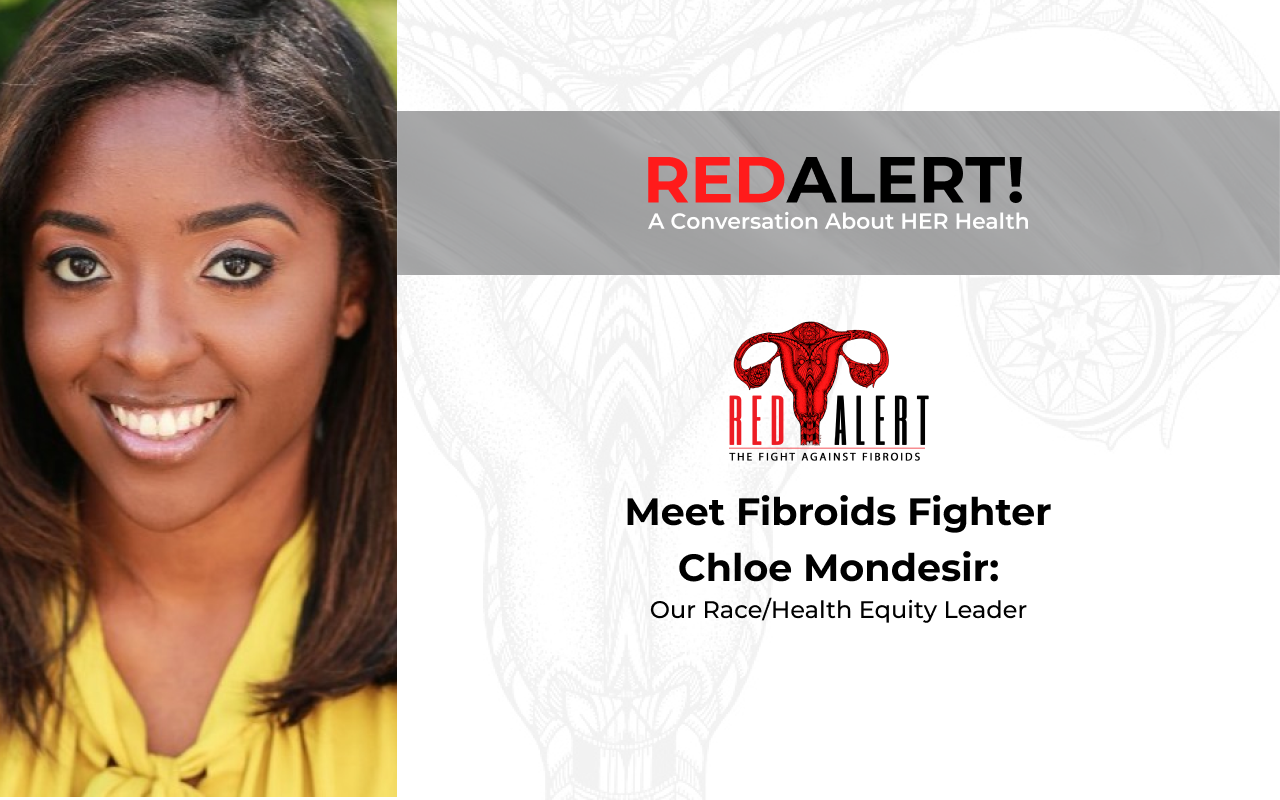
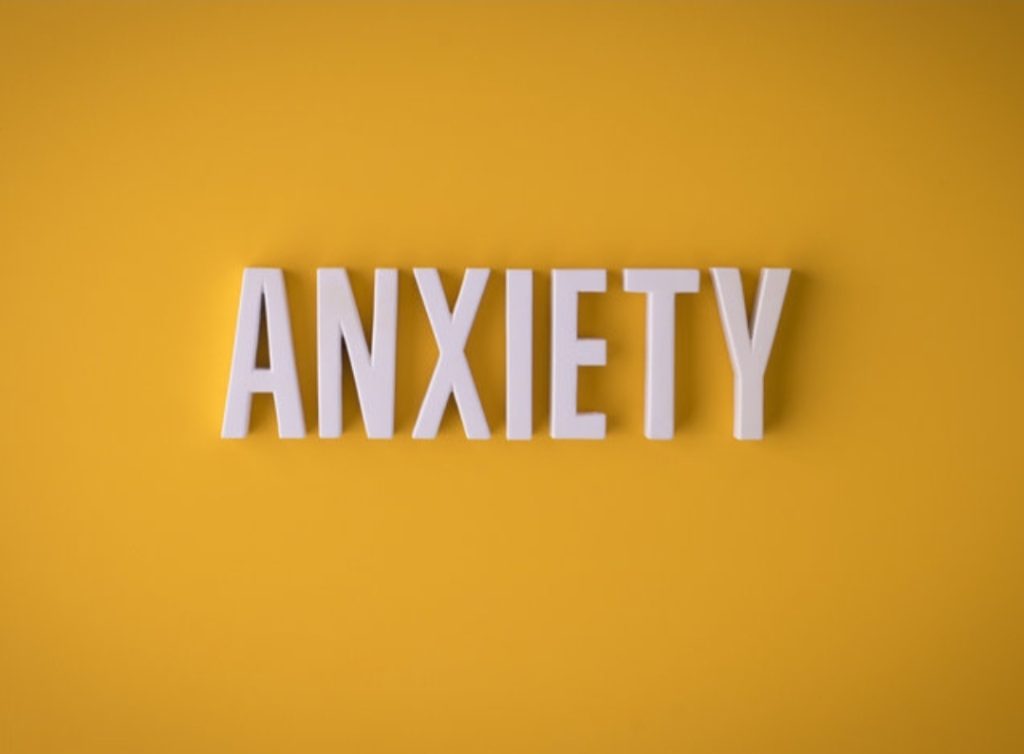
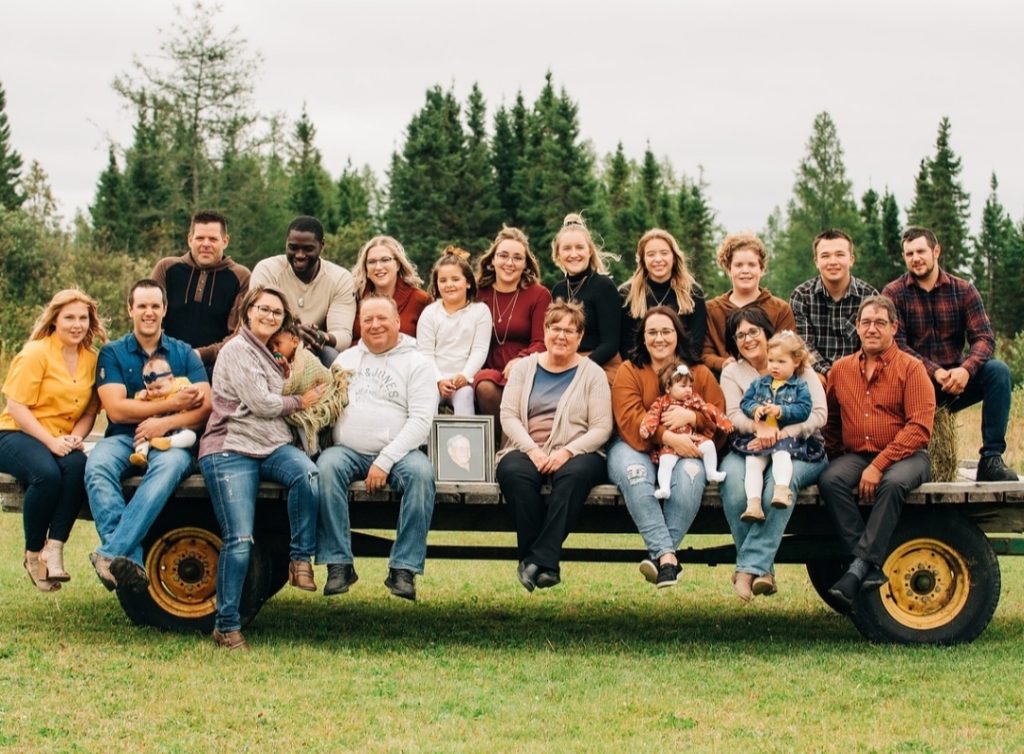

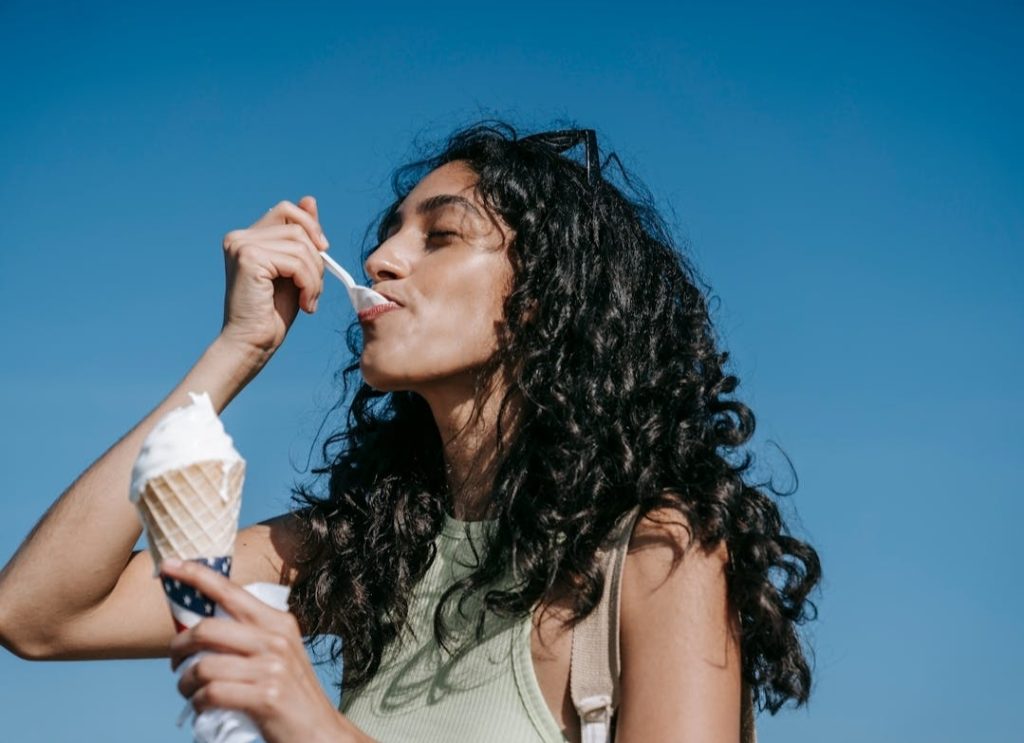
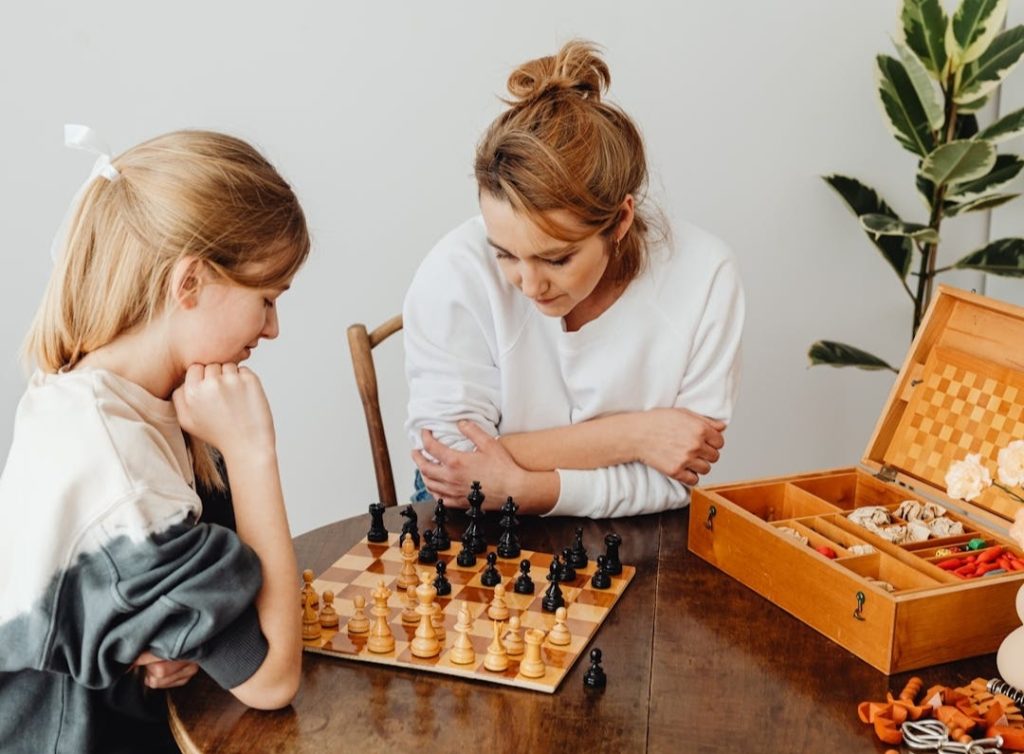
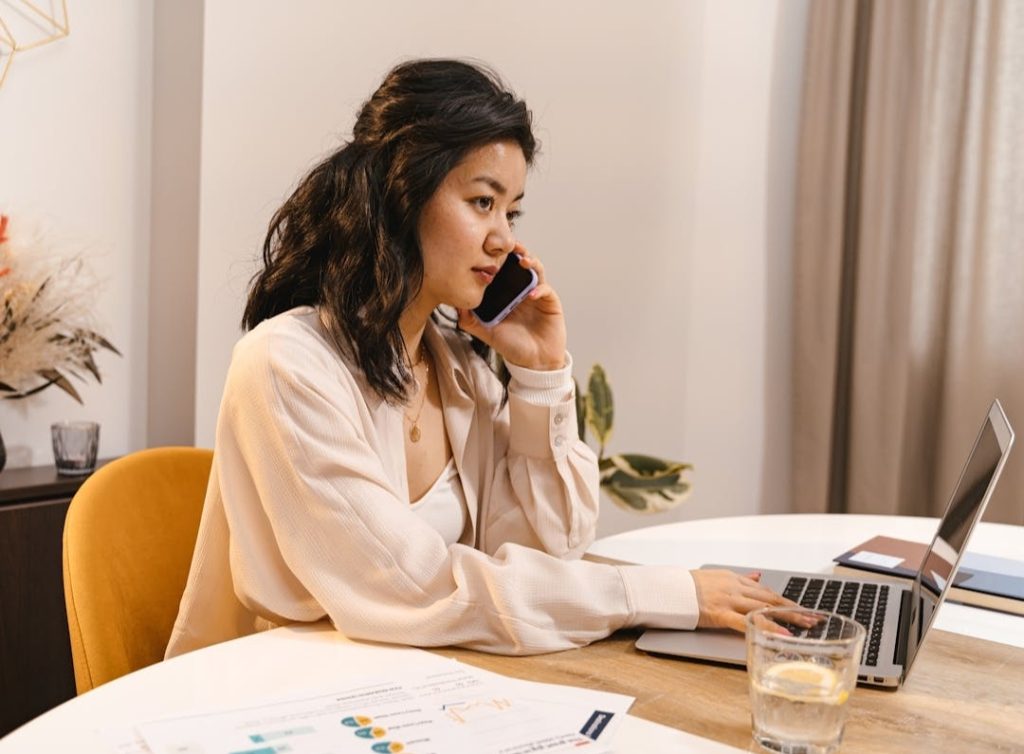
0 Comments